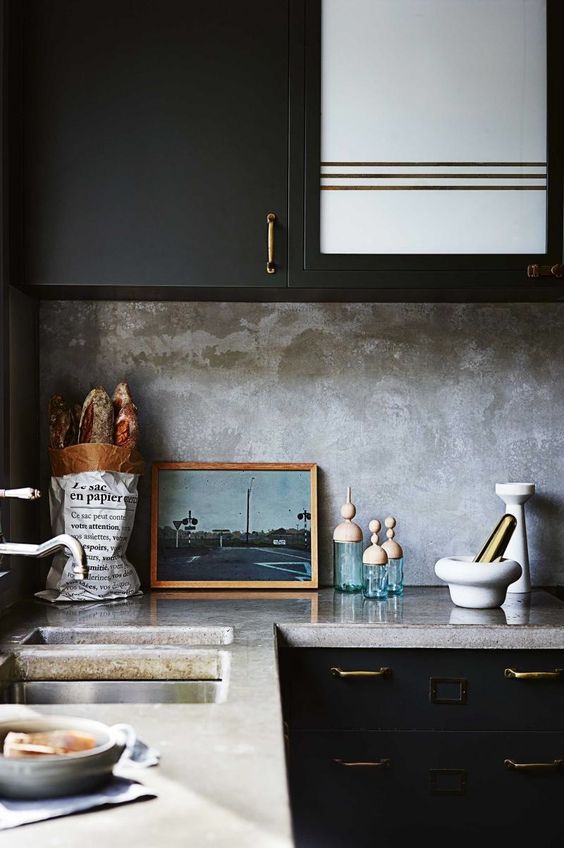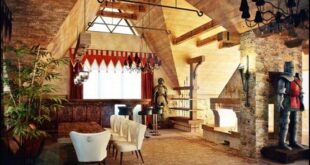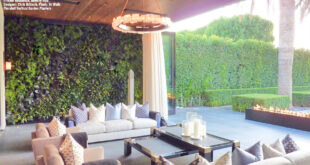Concrete is a very popular material for home decor and can be used in many settings, from industrial to boho spaces. It literally works for any room from the bathroom to the bedroom if it fits your design, but today I’m going to discuss something in more detail: concrete kitchen splashbacks. Are they working or not? Are they worth it or not? Let’s take a look at the pros and cons and decide.
advantages
Concrete is very trendy. It’s a great idea to give the room an edgy feel. The use of concrete backsplashes adds texture and depth to the decor. It is not only suitable for industrial or minimalist spaces, but is also used in many other kitchens: in modern, art deco, vintage and many others.
Concrete comes in many different forms: it can take on all shapes, stains, textures and finishes, so you can find something for every style of kitchen.
Concrete is not expensive compared to marble, quartz and other expensive solutions. I can say that this is a more budget-friendly option, especially if you’re doing it yourself.
Disadvantage
Concrete is very susceptible to stains and many other imperfections that can occur. This is because the porous substance can absorb liquids and even bacterial growth. This is why it is incredibly important to seal the surface during installation. In theory, sealing makes your gauges resistant to dirt, scratches, and heat. Unfortunately, sealed concrete also shows traces, especially olive oil, red wine, juice or coffee. Even water stains can prevent the backsplash from looking very neat. So if you’re a freak, opt for other backsplashes or at least add a pane of glass if needed. Some owners opt for a fully glazed backsplash.
Concrete Can Crack: This is a risk associated with concrete countertops, most often when they are cast in place rather than prefabricated. To prevent this you can add fiber reinforcement, rebar and/or wire mesh. However, if these continue to appear, they can be repaired.
Concrete back walls need maintenance. Seal your backsplash every one to three years. Avoid abrasives and scrubbers that can damage the seal. Consider all of these pros and cons and decide if concrete is worth it or not.
 decordip Interior Design Ideas
decordip Interior Design Ideas




